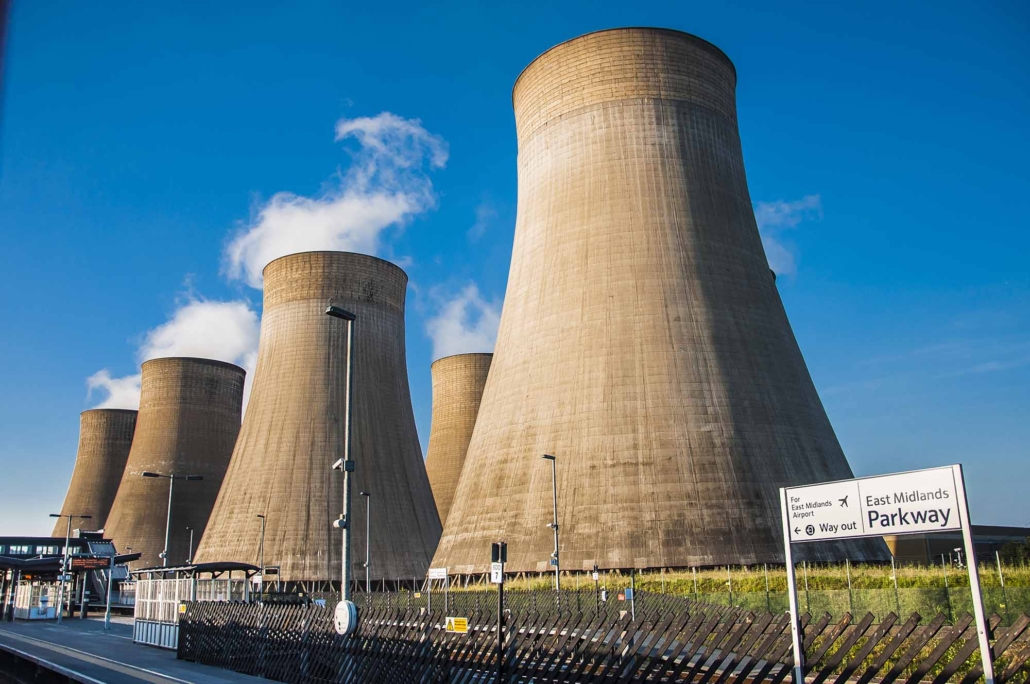This year marks a historic moment for the UK as it stops using coal to produce electricity after 142 years. The last coal power station, Ratcliffe-on-Soar, closed on Monday, September 30th, 2024, after operating since 1967. This event signals the end of the UK’s long dependence on coal, a fossil fuel that played a massive role in the country’s industrial history.
Ratcliffe on Soar Power Station
But why has the UK phased out coal, and what does it mean for the environment and the future of energy? Let’s explore these questions.
What Is Coal?
Coal is a fossil fuel that forms from ancient plant material buried and compressed over millions of years. It’s found deep underground and is mined to be used as an energy source. When coal is burned, it releases a lot of heat, which generates electricity in power stations. However, coal is non-renewable, meaning it can’t be replaced once used. It takes millions of years to form, so when we burn it, we’re using up a limited resource that won’t naturally regenerate in our lifetime. Additionally, burning coal releases harmful gases, including carbon dioxide, contributing to climate change.
The End of Coal Power in the UK
Coal has been a key energy source in the UK since the 18th century. It powered factories during the Industrial Revolution, helped generate electricity, and even heated homes. It was the backbone of the UK’s energy supply for many years.
However, coal is also one of the dirtiest forms of energy. Burning coal releases carbon dioxide (CO₂) and other harmful gases into the atmosphere, contributing to global warming and climate change. Because of this, the UK government decided to phase out coal and replace it with cleaner alternatives.
The UK’s last coal power station, located at Ratcliffe-on-Soar in Nottinghamshire, is expected to stop generating electricity on Monday. This marks the country’s final step to removing coal completely.
Did you know?
At its peak in the 1920s, the UK had over 1.2 million coal miners working in over 3,000 coal mines! Coal was such an essential part of life that many towns and cities grew around coal mines, and coal even powered the first steam engines during the Industrial Revolution, helping to transform Britain into an industrial powerhouse.
What Replaced Coal?
As coal use declined, the UK turned to other forms of energy to meet its needs. The biggest replacement has been natural gas, which is cleaner than coal and produces fewer greenhouse gases. In addition to natural gas, renewable energy sources like wind, solar, and hydropower have grown rapidly.
Today, renewable energy is responsible for a large share of the UK’s electricity. Wind farms, especially in the North Sea, have become a common sight, and solar panels are used in homes and businesses to capture the sun’s energy. Unlike coal, these power sources are renewable, meaning they won’t run out. Plus, they don’t produce the pollution that fossil fuels do.
The Environmental Impact
Switching from coal to cleaner energy has already made a big difference for the environment. Burning coal produces large amounts of CO₂, the main gas responsible for global warming. When the last coal plant shuts down, the UK’s CO₂ emissions will drop even further.
In addition to cutting CO₂ emissions, the closure of coal plants will reduce other harmful pollutants that cause air pollution. This helps improve air quality, which is better for people’s health.
Challenges Ahead
While the UK’s shift from coal is a major environmental success, it’s not without challenges. One of the biggest challenges is ensuring enough electricity when renewable sources aren’t available. For example, wind farms don’t produce power when the wind isn’t blowing, and solar panels can’t generate electricity at night.
To overcome this, the UK is investing in better technology for storing energy and improving the electricity grid. This way, when there’s extra energy from wind or solar, it can be saved when needed.
Another challenge is ensuring a fair transition for people who work in the coal industry. Many people work in coal power stations and other associated industries, such as transportation, so the government has to provide new opportunities for workers in industries like renewable energy.
A Cleaner Future
The end of coal power in the UK is a major step toward a greener, more sustainable future. As the country moves away from polluting fossil fuels, it’s relying more on renewable energy to meet its electricity needs. This helps fight climate change and protects the environment for future generations.
While there are still challenges to overcome, the UK’s progress in replacing coal with cleaner energy shows that big changes are possible. As young geographers, you can explore these developments and think about your role in protecting our planet.


